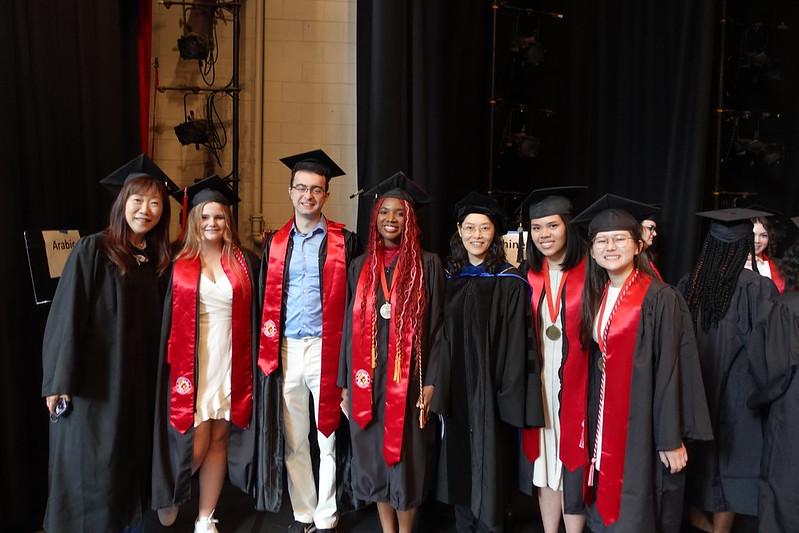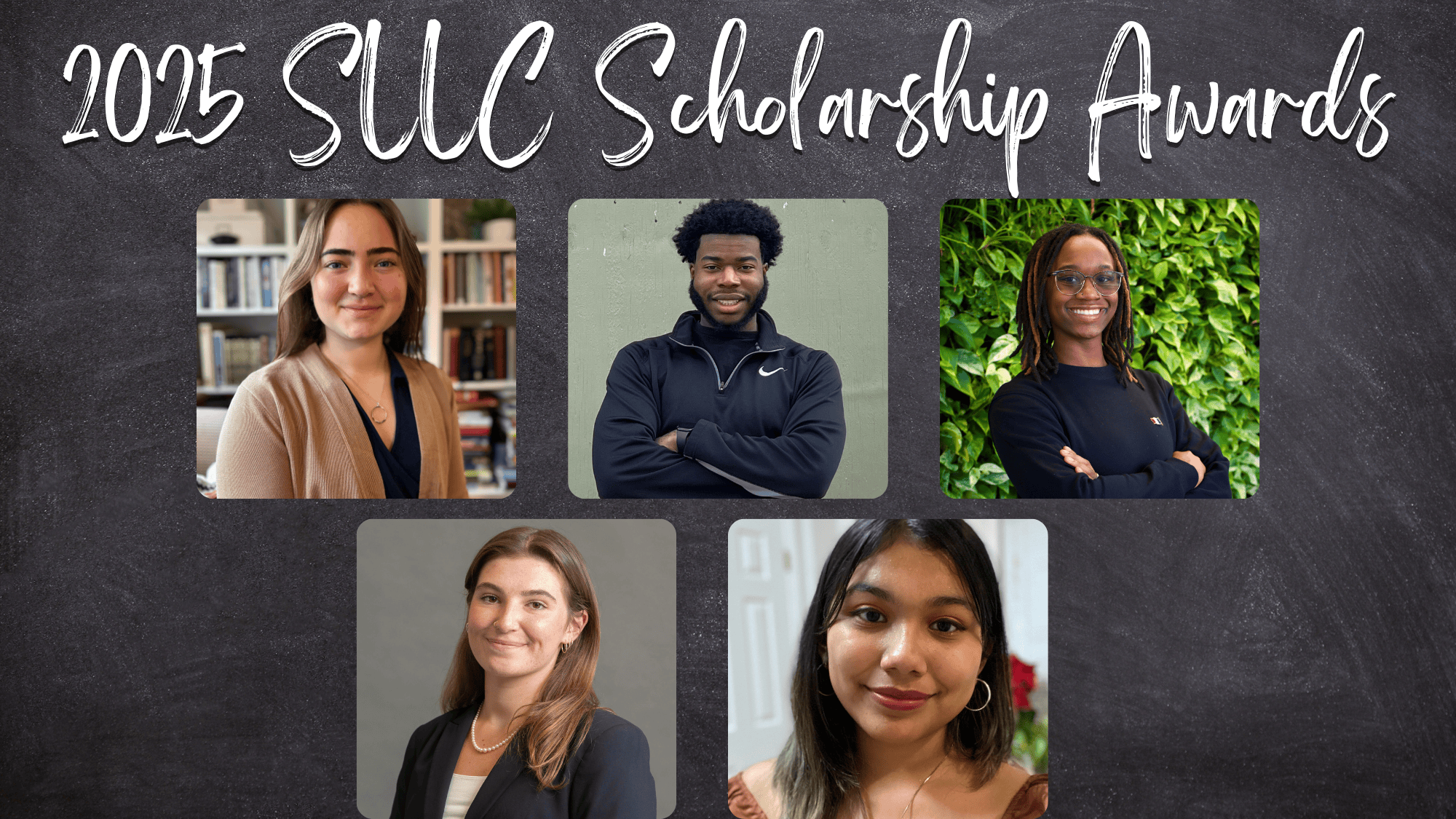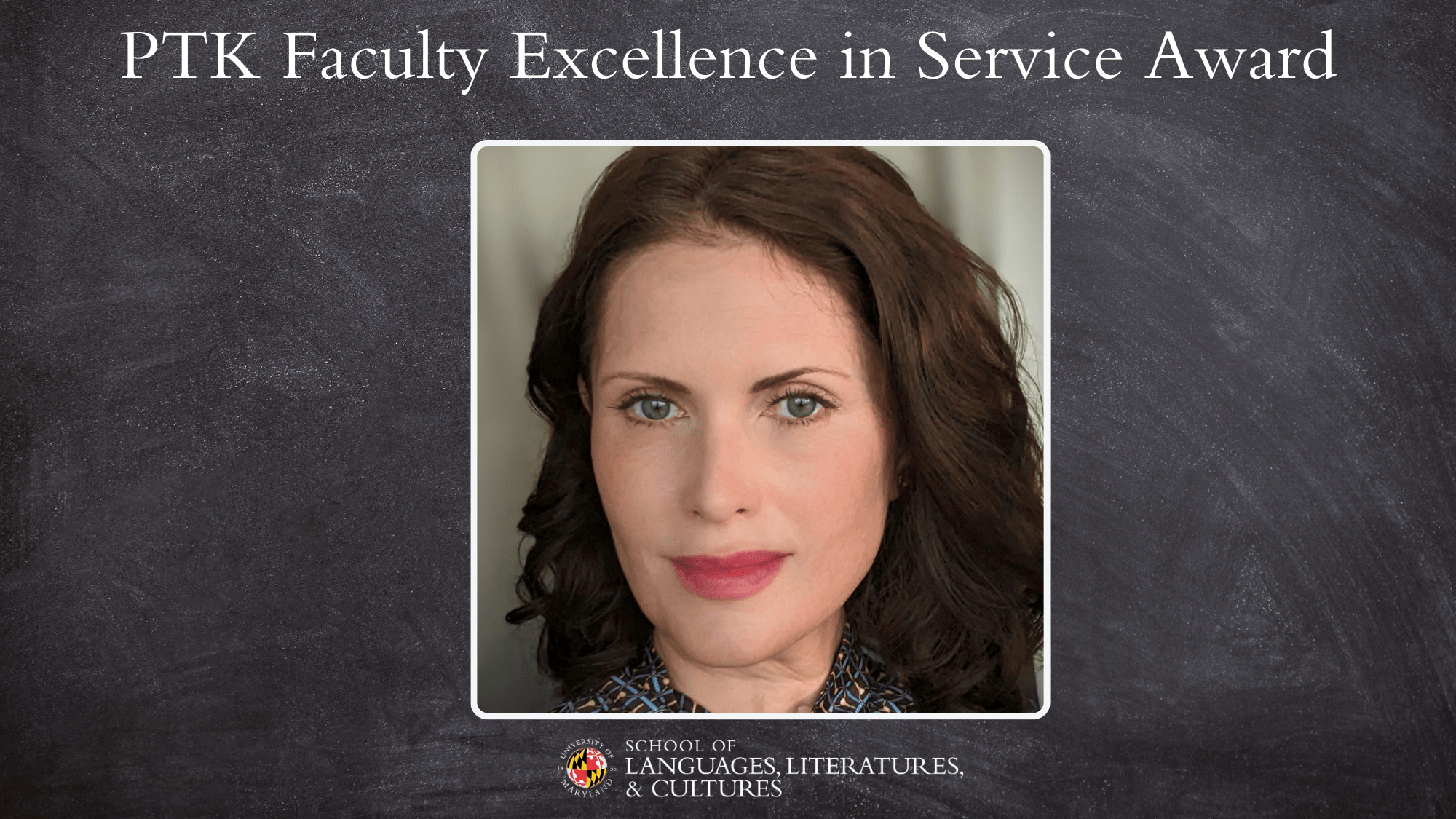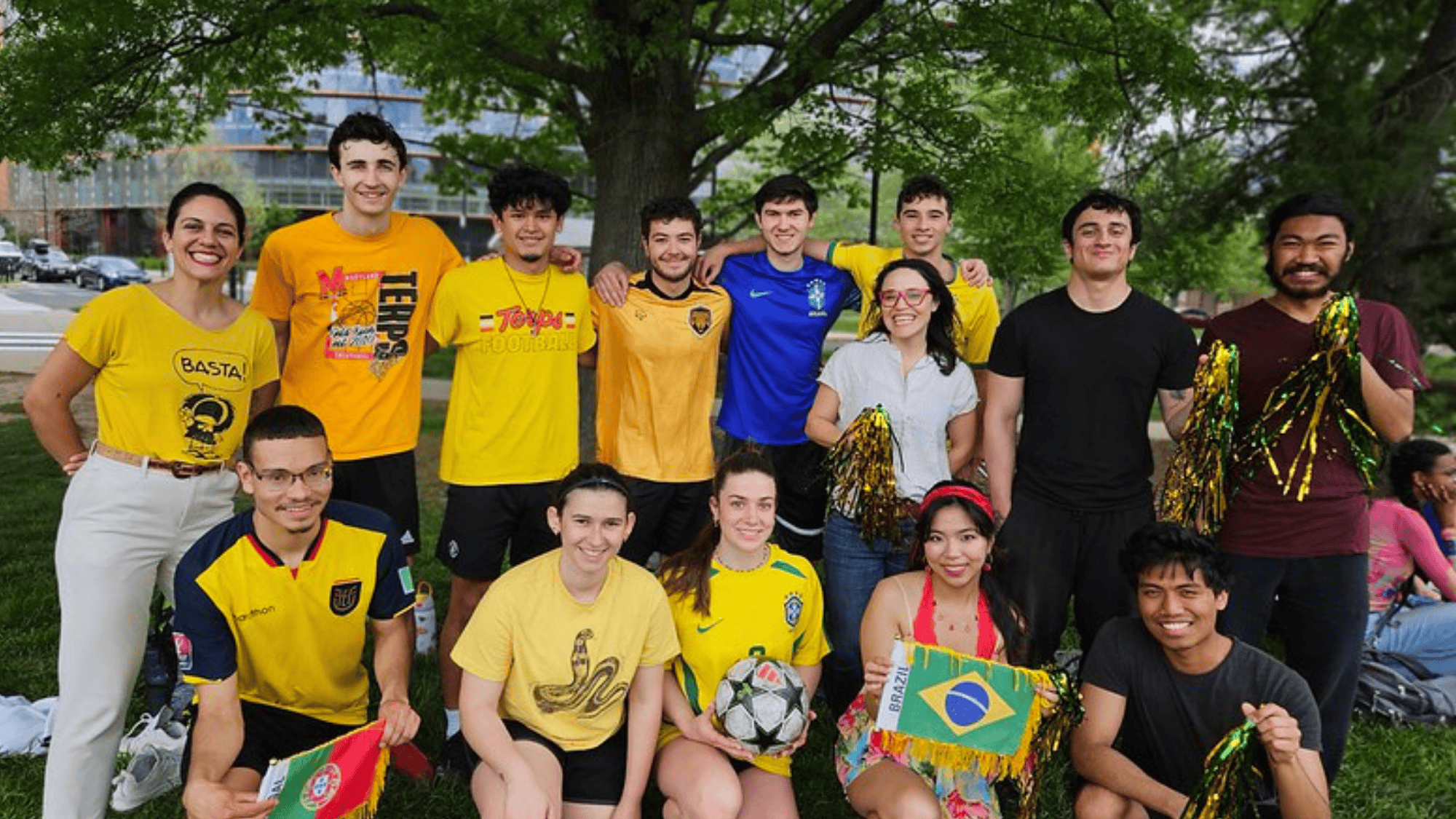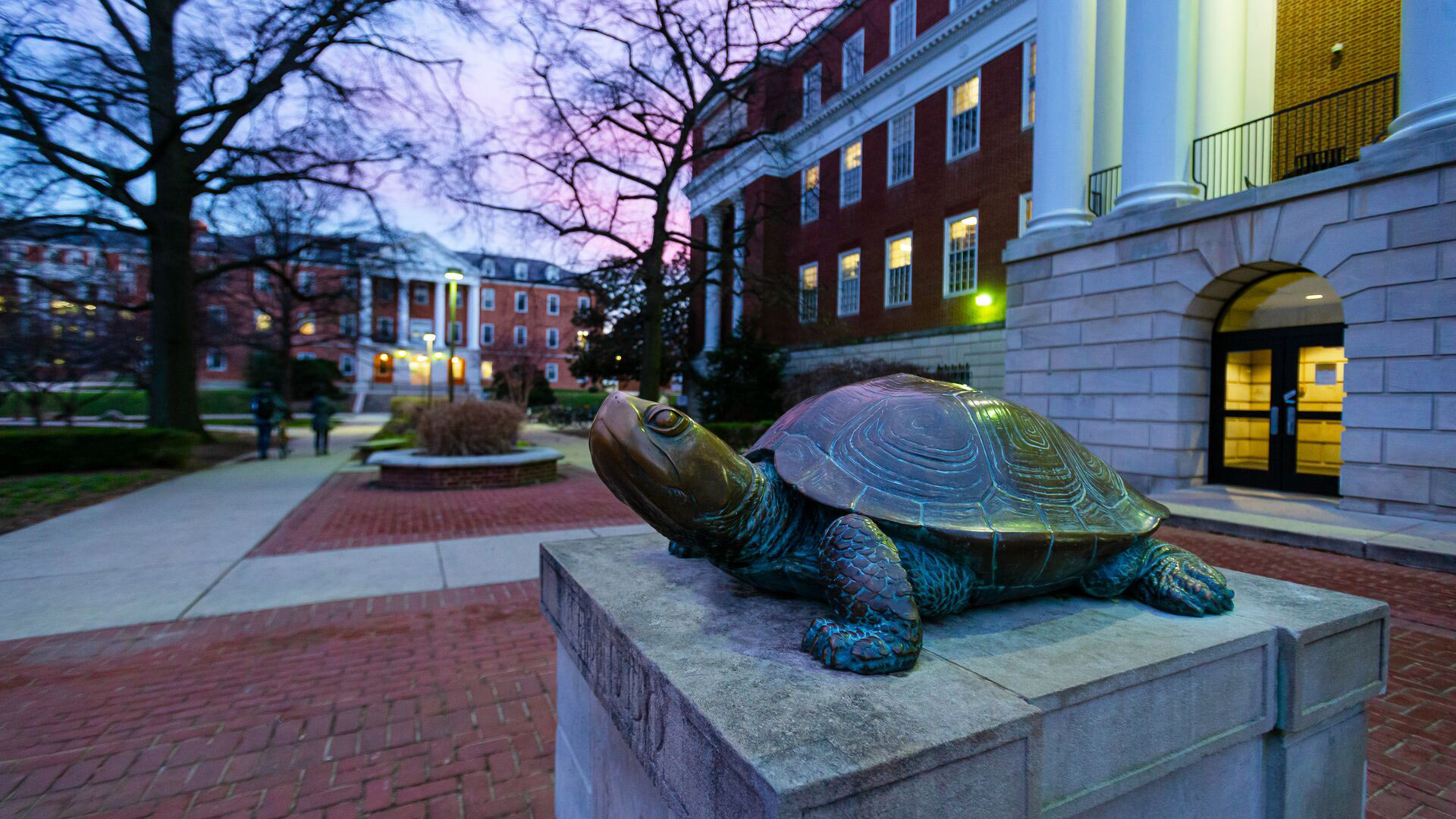University of Maryland School of Languages, Literatures, and Cultures Home
Welcome to the School of Languages, Literatures, and Cultures in the College of Arts and Humanities at the University of Maryland, College Park.
We invite you to learn more about our languages and programs, our undergraduate and graduate degrees and our special programs like the Language House Living-Learning Program, the Language Partner Program, the Persian Flagship Program, Project GO and the Summer Language Institutes.
About Us
Undergraduate Programs
Undergraduate Programs
The School is a transdisciplinary teaching and research unit. Our students, faculty, and staff investigate and engage with the linguistic, cultural, cinematic, and literary worlds of speakers of Arabic, Chinese, French, German, Hebrew, Italian, Japanese, Korean, Persian, Portuguese, Russian, and Spanish, as well as Cinema and Media Studies.
Graduate Programs
Graduate Programs
The School of Languages, Literatures, and Cultures offers three Ph.D. programs, four M.A. programs and an advanced graduate certificate in Second Language Acquisition. Our students pursue successful careers in academia, the government, secondary education and the private sector.
Graduate ProgramsFaculty and Staff
Alumni
Alumni
Stay connected with SLLC as an alum by sharing news of your accomplishments, joining our newsletter, attending events and giving back.
News and Announcements View All News
Go Beyond the Classroom
Recent Research ActivitiesResearch and Innovation
Modeling relationships between learning conditions, processes, and outcomes: An introduction to mediation analysis in SLA research.
We offer a step-by-step, contextualized tutorial on the practical application of mediation analysis in three different research scenarios, each addressing a different research design using either simulated or open-source datasets.
Author/Lead: Ruirui Jia, Bronson HuiIn the past decade, researchers have been increasingly interested in understanding the process of language learning, in addition to the effect of instructional interventions on L2 performance gains (i.e., learning products). One goal of such investigations is to reveal the interplay between learning conditions, processes, and outcomes where, for example, certain conditions can promote attention to the learning targets, which in turn facilitates learning. However, the statistical modeling approach taken often does not align with the conceptualization of the complex relationships between these variables. Thus, in this paper, we introduce mediation analysis to SLA research. We offer a step-by-step, contextualized tutorial on the practical application of mediation analysis in three different research scenarios, each addressing a different research design using either simulated or open-source datasets. Our overall goal is to promote the use of statistical techniques that are consistent with the theorization of language learning processes as mediators.
Do data collection methods matter for self-reported L2 individual differences questionnaires? In-person vs crowdsourced data.
Crowdsourcing offers great advantages in data collection by enabling researchers to recruit a large number of participants across geographical boundaries within a short period of time. Despite the benefits of crowdsourcing, no study has explored its valid
Author/Lead: Ruirui Jia, Ekaterina SudinaWe recruited a total of 209 in-person and 209 crowdsourced participants for comparison. Both groups completed the short versions of the Foreign Language Classroom Anxiety Scale and the Foreign Language Enjoyment Scale, provided their demographic and language learning background information, and completed the LexTALE test. Measurement invariance testing revealed that most (sub)constructs exhibited partial or full invariance, indicating stability in the measurement systems across both data collection settings. However, crowdsourced participants reported higher enjoyment and lower anxiety than in-person participants. These differences can be attributed to the more relaxed mental state of the crowdsourced participants who completed the survey outside of the classroom.
Caleidoscopio
Caleidoscopio es una ventana a los esplendores secretos del mundo de Carmen Benito-Vessels en 49 narraciones
Author/Lead: Carmen Benito-VesselsCaleidoscopio es una ventana a los esplendores secretos del mundo de Carmen Benito-Vessels en 49 narraciones ––algunas cuentos, otras ejercicios de memoria, algunas más observaciones sobre lo que no se entiende del mundo, pero debería entenderse—. Esta colección es un fichero de historias, a menudo hilarantes y siempre agudas, en las que una mente curiosa y elegante medita sobre lo chico en lo grande, sobre lo que solo se puede encontrar entrelíneas, sobre lo que da claridad entre la opacidad de lo grandilocuente. Si leer ficción es siempre una necesidad crítica ––leyendo aprendemos maneras nuevas de pensar–– y una empresa estética ––ciertas escrituras nos dan placer––, en Caleidoscopio de Carmen Benito-Vessels el placer critico viene de la posibilidad de ver al mundo desde un lugar que hace brillar lo que muestra.
Grupo Editorial Círculo Rojo SL (December 30, 2024)
Choose the SLLC
Land Acknowledgement
Every community owes its existence and strength to the generations before them, around the world, who contributed their hopes, dreams, and energy into making the history that led to this moment.
Truth and acknowledgement are critical in building mutual respect and connections across all barriers of heritage and difference.
So, we acknowledge the truth that is often buried: We are on the ancestral lands of the Piscataway People, who are the ancestral stewards of this sacred land. It is their historical responsibility to advocate for the four-legged, the winged, those that crawl and those that swim. They remind us that clean air and pristine waterways are essential to all life.
This Land Acknowledgement is a vocal reminder for each of us as two-leggeds to ensure our physical environment is in better condition than what we inherited, for the health and prosperity of future generations.
Office of Diversity and Inclusion

